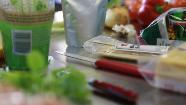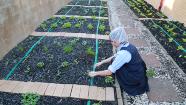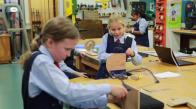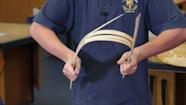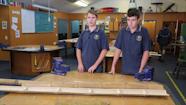Matt Spencer explains that Walter Findlay Ltd bakery is thoroughly audited, to ensure compliance to their food safety programme.
Food safety in a national environment – Walter Findlay Ltd
Transcript
Matt Spencer: We basically have our own food safety programme and that’s developed by the company. We have a quality systems manager who works to keep up with all the new regulations that different bodies might want. We’re audited by two separate firms; one for the food safety programme, and one for Woolworths quality assurance – and that’s for supplying Countdown with bread into their shops and they have a whole set of regulations that they want you to follow, basically to show their food is safe.
Within these audits they are looking at pretty much the same sort of things but Woolworths quality assurance goes a lot more in depth. They’ll go right through your entire food safety programme, making sure everything is in line with what they want, very strict. They will issue minor and major corrective actions in which you might have two weeks for a major and four weeks for a minor corrective action to have these processes up and running in the order that they would like it. That can come down to your paper work and you’re no longer allowed to, for example, tick a box to say that this process has been completed. Everything now basically has to be initialled, it’s either got to have a pass or a fail (instead of a tick or a cross), a little bit more involved I suppose.
They want to know who’s doing exactly each check at what time and processes like that. They’ll go through your process flows, they’ll go through your plant, they’ll do what you might call a bucket audit, where they’ll actually walk around with a bucket in their hand and pick up any little minor thing they can, from a piece of plastic as small as a five cent piece to maybe a nail sitting somewhere on the floor where it shouldn’t be, out of production. It doesn’t really matter to them, they deem it shouldn’t be there so they’ll take that and record it.
They go through all your testing procedures, microbiological testing, they’ll check that you’re having nutritional information testing done, making sure that you’re doing quality checks throughout the day on your processing plant from whether it be a temperature check or a number of slices, they will measure the width of your slices to make sure that you’re in specification of the product that you’re putting into their packaging.
Food safety training, basically we’ll run through a food safety training programme in their induction. We do normally about 6 monthly refresher training with our quality manager, he’ll come over and run quality training. That will involve things like hand washing, making sure the plant is kept clean, dropped items, making sure that everybody is aware of the dropped item policy, if it’s dropped on the ground of course it’s got to be washed before being re-used or discarded depending on what it is.
Through the food quality training, or the food safety training, we’ll have pest control, where we have the pest register. We’ll note on it any pests that are seen within the bakery or the dispatch area – that is recorded and then our contractor for our pest control can go through these sheets, and say, "Right I’ve had so many moths have been seen in the bakery", or a fly might have been seen, so he can either increase his number of stealth units that he might be using, or if he needs to put baits down for ants or anything like that, that can be done.
Related videos
Real food, real fast (02:35)
Students were set a brief to develop a faster, fresher, healthier takeaway based on an analysis of a traditional recipe....
A food bag for a family dinner (03:31)
With a focus on using seasonal produce and their families as stakeholders, students produced great recipes and food bags for a family dinner....
My context and issue (04:57)
Year 13 students share about the contexts and issues they have chosen in their food technology programme.
Engaging contexts in product design (03:09)
Abby Dingle discusses materials and tools that engage students in product design.
Combining knowledge and practice (01:58)
Steve Andrew explains how understanding materials is essential for effective technological practice.
Linking hands-on experiences and understandings (03:54)
Hands-on experiences allow the students to see materials understandings in action.
Play, experiment, explore (02:55)
Steve Andrew lets the students see, feel, and play with products to develop their understandings in materials.
Finding materials to meet the specs (02:36)
Steve Andrew shares how students identify material specifications in a brief and then test materials to find those that are suitable....
School–industry relationship cuts both ways (03:36)
Steve Andrew and Terry Rillstone describe the way the relationship between St John's College and The Shop has benefits for them both....
Pushing the boundaries with materials (02:53)
Steve Andrew describes how his senior students have the confidence to select and work with unfamiliar materials.
Exploring unfamiliar materials (02:44)
Year 12 students from St John's College describe what they know about bamboo and how they are applying this knowledge to their projects....
Students and teachers talk about testing materials in year 11.
Manipulating, forming, and transforming
Students in year 10 describe manipulating, forming, and transforming materials.
Evaluating materials for an outcome
Steve Andrew and students talk about using their knowledge to test materials for their projects at year 12.
Year 10 students describe some of the attributes for the snake skates they are developing.
Senior students select their own issues
Year 12 students talk about the issues that they have selected for their projects.

